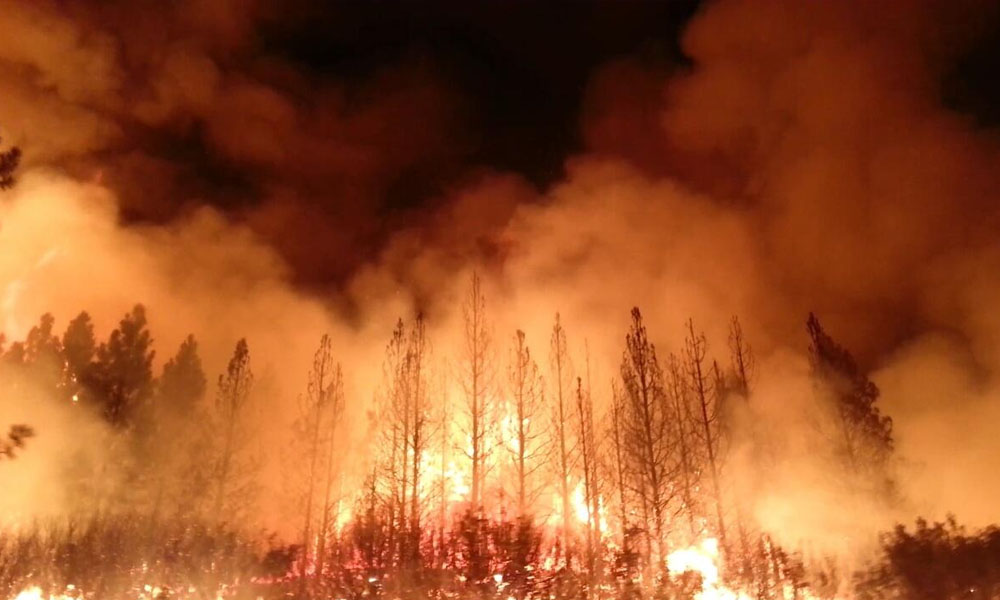
Image Credits: Wikipedia
2020 Arctic Wildfires Emitted 35% More CO2 Than All Of 2019: Report
Writer: Reethu Ravi
Reethu, a story teller, a person often found between the pages of a book or contemplating the nuances of life.
India, 1 Sep 2020 1:28 PM GMT
Editor : Shubhendu Deshmukh |
Shubhendu, the quint essential news junky, the man who loves science and politics in equal measure and offers the complete contrast to it by being a fan of urdu poetry as well.
Creatives : Vijay S Hegde
I am a creative, artistic and ambitious designer, with a talent for thinking outside the box and coming up with innovative ideas and designs. I graduated with a 1st Class honors degree in Video Editing from MAYA ACADEMY OF ADVANCED CINEMATICS
According to data by the EU’s Copernicus atmosphere monitoring service, till August 24 this year, 245 megatonnes of CO2 had been released from wildfires, compared to 181 megatonnes in the whole of last year.
The wildfires in the arctic have emitted 35 per cent more carbon dioxide so far in 2020 than in all of 2019, according to European atmospheric composition data.
According to data by the EU's Copernicus atmosphere monitoring service, till August 24, 2020, 245 megatonnes of CO2 had been released from wildfires, compared to 181 megatonnes in the whole of last year, reported The Guardian.
July reported the highest numbers of active fires at around 600, while in 2019, this was 400. Meanwhile, between 2003 and 2018, the average equivalent number was around 100. According to estimates by Copernicus, between June 1 and July 31 alone, 205 megatonnes of CO2 was emitted.
"In some respects [the data] has been similar to 2019 in terms of the dry and warm conditions in the Siberian Arctic. This year, the difference was a large cluster of fires that burned through July for many days leading to higher estimated emissions," Dr Mark Parrington, senior scientist at Copernicus, was quoted as saying by the media.
Compared to 2019, carbon emissions increased significantly in July and early August. Meanwhile, Dr Thomas Smith, assistant professor in environmental geography at the London School of Economics, said, "We have seen two years of anomalously high activity, according to the satellite record that goes back to 2003."
He added that some of these fires were ancient peat bogs containing carbon that accumulated over thousands of years - a process similar to the that of burning fossil fuels.
Smith's analysis covering May and June 2020 suggested that around 50 per cent of the fires in the Arctic Circle were burning on peat soils and the vast part of the fires occurred in eastern Siberia.
In recent years, Arctic wildfires have become a cause for concern, with fires becoming more widespread in 2019 and 2020.
Also Read: Brazil: Fires In Amazon Rainforest Up By 28% In July Compared To A Year Ago
 All section
All section














